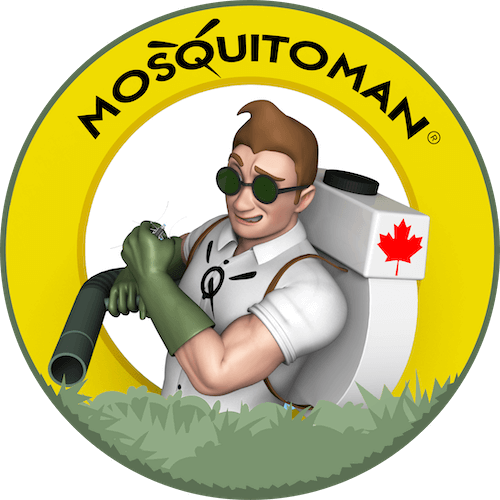Explore effective tick bites home remedies using household solutions and herbal care. Discover how to manage symptoms with natural treatments for a safe and healthy approach. Learn about our tick control services in Canada.
Effective Home Remedies for Tick Bites
What are the common signs of a tick bite?
Tick bites can be hard to notice at first. Look for a small red bump that might look like a mosquito bite. Sometimes, a rash can form around it. You might also see swelling or signs of infection if not treated. Knowing these signs helps you take quick action to avoid problems.
How can aloe vera be used to soothe tick bites?
Aloe vera is great for soothing skin irritation from tick bites. Spread aloe vera gel directly on the bite to reduce itching and help healing. This natural remedy is gentle and stops you from scratching, which is important to prevent more irritation.
Can baking soda provide relief for tick bites?
Baking soda is a good home remedy for itchy tick bites. Mix baking soda with water to make a paste. Put it on the bite and leave it for about 10 minutes, then wash it off. This simple treatment helps ease the itch naturally.
Learn more: What to Do After a Tick Bite and Tick Bites That Won’t Heal: Understanding the Symptoms and Prevention
Natural Solutions for Tick Bite Relief
How does apple cider vinegar work for tick bites?
Apple cider vinegar is a popular way to relieve tick bites. It reduces swelling and itching. Dab a cotton ball soaked in apple cider vinegar on the bite. This natural remedy soothes the skin with its anti-inflammatory properties.
What role does tea tree oil play in tick bite treatment?
Tea tree oil is an essential oil with antimicrobial qualities, useful for tick bites. Mix a few drops with a carrier oil like coconut or olive oil. Apply it gently to the bite. This helps prevent infection and speeds up healing for natural relief.
Is lavender oil effective for tick bite swelling?
Lavender oil is known for reducing swelling from tick bites. Apply diluted lavender oil to the swollen area to decrease inflammation. Its calming scent can also help you relax during treatment.
Using Essential Oils for Tick Bite Relief
Essential oils can help soothe and relieve tick bites naturally. They can reduce swelling and help the skin heal.
Which essential oils are best for treating tick bites?
Some essential oils work well for treating tick bites. Peppermint oil, eucalyptus oil, tea tree oil, and lavender oil are good natural remedies. They help with swelling and aid in healing. These oils calm the skin and reduce inflammation, making them great for tick bite treatment.
How should peppermint oil be applied to a tick bite?
Peppermint oil is a helpful home remedy for tick bites. To use it, put a small amount on a cotton swab and apply it to the bite. This gives relief and a soothing feeling. Remember to mix it with a carrier oil like coconut or olive oil to avoid irritation.
Can eucalyptus oil help with tick bite symptoms?
Eucalyptus oil is another useful essential oil for relieving tick bite symptoms. It has soothing properties that can reduce inflammation and discomfort. Apply diluted eucalyptus oil to the bite to help ease symptoms naturally.
Herbal Remedies and Home Treatment Options
Herbal remedies and home treatments can also help relieve tick bites. Common ingredients like chamomile and turmeric may soothe the skin and reduce inflammation.
Are there any herbal pastes helpful for tick bites?
Yes, you can make homemade tick bite pastes with natural ingredients. Mix baking soda with a little water to create a paste, then apply it to the bite. Aloe vera gel can also be used for its calming effect on the skin.
How does chamomile assist in tick bite healing?
Chamomile is known for soothing and reducing inflammation, making it a great choice for healing tick bites. Placing chamomile tea bags on the bite helps reduce swelling and irritation, promoting faster recovery.
Can turmeric reduce inflammation from tick bites?
Turmeric is a strong anti-inflammatory spice that can help with inflammation from tick bites. You can make a paste using turmeric powder and water to apply to the bite area, helping with the healing process naturally.
Over-the-Counter Solutions vs. Natural Remedies
When you get a tick bite, you might wonder if over-the-counter (OTC) products or natural remedies are better. Let’s explore both to help you decide.
What OTC products complement home remedies for tick bites?
For treating a tick bite at home, mixing OTC products with home remedies often works well. Hydrocortisone cream can reduce itching and swelling. Antihistamines can help with allergy symptoms and give tick bite relief. Using natural remedies like aloe vera or a baking soda paste can also calm your skin. Together, OTC products and home remedies are a good team for managing tick bites.
How does hydrocortisone cream alleviate tick bite symptoms?
Hydrocortisone cream helps with tick bite symptoms by reducing swelling and itchiness. Apply a small amount to the bite area as directed for relief.
Are antihistamines recommended for tick bite irritation?
Yes, you can use antihistamines for tick bite irritation. They help with allergy symptoms like itching and redness. By blocking histamines, these medications provide significant tick bite relief. Always read the label or ask a healthcare provider before using them.
Understanding Tick Bite Symptoms and Risks
Knowing the symptoms and risks of tick bites is important, as they can sometimes cause serious health issues like Lyme disease.
What are the potential health risks of untreated tick bites?
Untreated tick bites can lead to several health risks, like infections, Lyme disease, and other tick-borne diseases. These can cause severe symptoms if not found and treated early. Watching a tick bite closely helps stop these problems.
How can you identify if a tick bite leads to Lyme disease?
A tick bite might cause Lyme disease, especially from a deer tick. Look for symptoms like a bullseye rash, fever, tiredness, and joint pain. If you see these signs, seek medical advice to get a proper diagnosis and timely treatment.
When is it necessary to seek medical attention for a tick bite?
You should seek medical attention for a tick bite if severe symptoms occur. This includes a spreading rash, trouble breathing, or infection signs like more redness or discharge. A healthcare provider can give a precise diagnosis and proper care to avoid complications.
Preventative Measures Against Tick Infestations
Ticks can cause problems, but you can keep them away with simple methods. Here, we talk about natural repellents and ways to protect your home from tick bites.
What steps can be taken to prevent tick bites at home?
Preventing tick bites starts with easy actions. Try these tips:
- Use Natural Repellents: Essential oils like eucalyptus, citronella, and lavender can help keep ticks away. Apply them to clothes or skin before going outside.
- Wear Protective Clothing: In tick-filled areas, wear long sleeves and pants. Tucking pants into socks adds protection.
- Maintain Your Environment: Cut grass short and remove leaves in your yard. This reduces places where ticks live.
- Check for Ticks: After being outside, look over your body and clothes for ticks.
These steps lower your risk of ticks at home.
How effective are natural repellents in keeping ticks away?
Natural repellents can help defend against ticks. Here’s how they work:
- Essential Oils: Oils like tea tree, rosemary, and lemongrass can repel ticks. Mix with carrier oils and put on your skin.
- Herbs: Growing herbs like mint and sage can deter ticks near your house.
- Home Remedies: Combine apple cider vinegar with essential oils to boost your home’s defense against ticks.
Natural remedies offer safe alternatives to chemicals but don’t always guarantee full protection.
Can household changes reduce tick presence?
Simple home changes can reduce ticks. Consider these:
- Yard Maintenance: Regularly mow the lawn and clean up leaves to limit tick homes.
- Fence Off Areas: Barriers between your yard and woods keep ticks out.
- Pet Precautions: Groom pets and use tick prevention measures to stop them from bringing ticks inside.
These actions make your environment safer from ticks.
Post-Bite Care and Monitoring
Proper care after a tick bite is vital. Learn how to treat bites and watch for symptoms.
How do you properly clean a tick bite area?
When a tick is off, clean the bite area by:
- Wash with Soap and Water: Use mild soap and water to clean away germs.
- Apply Antiseptic: Disinfect the wound with antiseptic wipes or solutions.
- Monitor for Infection: Watch for signs like redness or swelling.
These steps help prevent infection and aid healing.
Should ice packs be used to manage tick bite pain?
Ice packs help ease pain and swelling from tick bites. Use them like this:
- Application: Wrap ice in a cloth and press it to the bite for 10-15 minutes.
- Relief: It cools the bite and reduces swelling.
- Repetition: Do this every few hours if needed for comfort.
Ice packs give quick relief for tick bite symptoms.
What are common delayed reactions to watch for after a tick bite?
Sometimes, reactions to tick bites show up later. Look for these:
- Rash: A spreading rash, especially a bullseye shape, might mean Lyme disease.
- Fever: If you get a fever after a bite, see a doctor.
- Health Changes: Feeling tired or having joint pain could mean a serious reaction or infection.
If you notice these, visit a doctor quickly to avoid health risks.
The Role of Diet and Supplements in Recovery
Eating the right foods and taking certain supplements can help your body heal faster. A balanced diet is important for staying healthy. It gives your body the nutrients it needs to repair itself. Vitamins like vitamin C and vitamin D are very helpful in the healing process. Vitamin C helps your immune system, and vitamin D keeps your bones strong.
Nutritionists suggest eating a variety of colorful fruits and vegetables because they have lots of vitamins and minerals. Foods like oranges, berries, spinach, and carrots are great choices. Sometimes, making dietary changes can speed up your recovery if you’ve been sick or hurt. Taking supplements might be necessary if you’re not getting enough nutrients from food alone, but always talk to a doctor first.
Tips for Safe and Quick Recovery
When you’re recovering, focus on safe healing practices. If you’ve had a tick bite, watch for unusual symptoms like a rash or fever. These could be warning signs of an illness like Lyme disease.
Visiting a doctor is important if you notice any worrying symptoms. Health care professionals can advise on what to do next and whether you need urgent care. Paying close attention to your body during recovery helps you get better without complications.
Remember, taking care of yourself means listening to what your body needs and acting fast if something doesn’t seem right.
Frequently Asked Questions: FAQs About Tick bites home remedies
What are some effective home remedies for tick bites?
Applying a cold compress can help reduce swelling and make you feel better. Natural remedies like aloe, coconut oil, or witch hazel can soothe itchy skin from tick bites. Herbal options such as neem oil, garlic, or basil are also good choices for treating symptoms at home.
How can I treat tick bites naturally?
To treat tick bites naturally, try using coconut oil or olive leaf extract on the area. These can help with itching and healing without using chemicals.
What should I apply immediately after a tick bite?
First, clean the bite with soap and water. Then, put some antibiotic ointment on it to keep it from getting infected. A cold compress can also ease pain and swelling.
What natural oils are beneficial for treating tick bites?
Oils like thyme oil, oregano oil, and neem oil can help relieve itchiness and promote healing when used on tick bites.
Is it advisable to use household items for treating tick bites?
Yes, items like baking soda paste can reduce irritation, and vinegar can help clean the bite. Always check for unusual reactions, and see a healthcare provider if needed.
Are there specific vitamins or supplements that support recovery from tick bites?
Vitamins like C and E are good for your skin and can help your skin heal after a tick bite.
How do I know if a tick bite requires medical attention?
You should see a doctor if you have a lot of swelling, fever, or rash after a tick bite. These could mean an allergic reaction or a tick-borne disease.
Can natural remedies substitute for professional medical treatment for tick bites?
While natural remedies can help, they shouldn’t replace medical treatment. It’s important to speak with a doctor or naturopath if you have severe symptoms or an infection.
Tick bites home remedies – Key Insights
- To treat tick bites at home, try hydrocortisone cream, antihistamines, or a cold compress to reduce swelling and itch. Natural remedies like vinegar, honey, or calendula may also help.
- If you don’t treat tick bites quickly, they can cause diseases like Rocky Mountain spotted fever. Go to a doctor if symptoms get worse or new ones appear.
- In urgent care cases, such as in Norwalk, CT, and New Caney, it’s important to have access to centers that focus on wellness for tick-borne diseases.
- Lemon juice, onion, and mustard oil might reduce tick bite symptoms. Always check with a healthcare professional before trying them.
- The CDC offers helpful information on tick diseases and prevention. Learning from trustworthy sources aids in tick management and treatment.
- Use methods like nail polish or petroleum jelly to suffocate ticks, and wear proper clothes in tick-prone areas as part of your tick management plan.
- In places like Alberta and New Jersey, naturopaths can guide you on using herbs and lifestyle changes for tick bites.
- When removing a tick, use tweezers and clean the area with rubbing alcohol to prevent infection. Ask a doctor if unsure about removal.
- Try oatmeal baths, clay masks, or banana peels to ease itchy skin after a tick bite. These options are gentle and soothing.
- Stay informed about tick bite risks through resources like the Mayo Clinic and American Red Cross. These can help make informed decisions and maintain good health practices.





